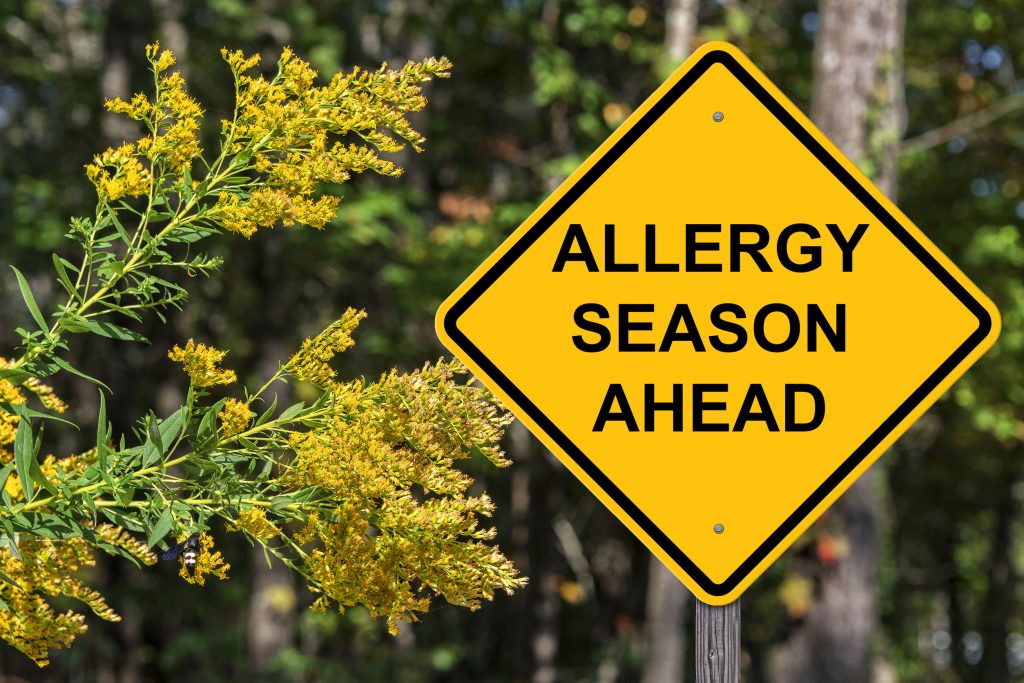All of us here in California spent the first half of spring being mesmerized by the wildflower super bloom. We were blessed with luscious rainfall as the year began, and as a result we saw the spread of vibrant, blossoming color instead of wildfire. I’m sure many of you made the time to head out to the closest canvas to enjoy their beauty and breathe in the rejuvenating scent.
While the spring super bloom brought vitality and inspiration to the region that won’t soon be forgotten, if you are prone to seasonal allergies then you have likely been constantly reliving that memory in a more unpleasant manner. If you suffer from seasonal allergy symptoms, you probably end up having to endure the effects for weeks, sometimes all throughout both the spring and summer seasons.
Individuals living with the burden of allergies often struggle to find sufficient relief—or any relief at all—in the typical over-the-counter antihistamines and nasal decongestants used to treat symptoms. It can be frustrating and disheartening when you feel like you have nowhere left to turn to alleviate your chronic discomfort.
Luckily for you more sensitive folk, acupuncture is an effective, natural option for symptom relief and even prevention during off-season. Keep reading to find out how acupuncture can help breathe some fresh air back into your life!
What causes seasonal allergies?
When spring comes along and your eyes start to water and your nose closes up, do you know exactly what’s happening in your body? An allergic response is the body’s attempt to fight off what it has classified as a foreign invader with a release of chemicals—like histamine. Sometimes our bodies misinterpret harmless substances as threatening, so an allergic response is a defense intended to keep us healthy. Unfortunately, it tends to do the opposite.
Seasonal allergies are triggered by airborne substances the season, most often spring or summer, exposes you to—pollen, grass, and ragweed are usually the culprits. The immune system essentially overreacts, resulting in hypersensitivity and irritating symptoms.
Allergies tend to flare up especially after a rainy season, like California has been experiencing this year. The excess rain leads to rapid plant growth, which results in more mold and pollens out in the open to prompt a hypersensitive response.
Is it allergies or a cold?
Obviously, seasonal allergy symptoms often mirror those of a cold, so you might be wondering how to tell the difference. Knowing whether you’re dealing with allergies or a cold is important in order to receive the best treatment for your condition.
The biggest distinction between the two is that a cold only lasts from a couple of days up to two weeks and seasonal allergies persist much longer—usually for about six weeks or so. Allergy symptoms also come on very quickly, whereas a cold presents gradually.
Another tell-tale sign that your symptoms are being caused by allergies is watery/itchy eyes, which don’t present with a cold. If you’re experiencing a fever or body aches however, you’re definitely going to need some DayQuil.
The most common seasonal allergy symptoms include:
- Runny nose
- Nasal Congestion
- Watery/itchy eyes
- Sneezing
- Post-nasal drip/drainage
- Scratchy throat
- Sinus pressure or headache
Seasonal allergies don’t usually produce a life-threatening bodily response like a food or medication allergy can. However, they can become a chronic problem because of their prolonged consistency and sometimes harsh side effects that can be disruptive to daily life.
Traditionally, seasonal allergies are treated with OTC antihistamines and decongestants, nasal spray, and sometimes allergy shots or immunotherapy from a medical professional. These options can become cumbersome and less effective over time.
Nobody wants to trek to the doctor’s office every month or two weeks or dole out endless amounts of money to become dependent on drugstore medications. That’s why many seasonal allergy sufferers will turn to natural, alternative remedies and treatment options—and often find them extremely effective.
How does acupuncture help treat seasonal allergies?
Acupuncture is a proven solution, not only when it comes to allergy symptom relief but, over time, in preventing the allergic response in the first place. Acupuncture uses specific pressure points on the body to do the following:
- Decongest and soothe the nasal membrane
- Alleviate cough
- Reduce phlegm
- Relieve sinus pressure/pain and headache
- Relieve itchy eyes
Allergy patients who receive acupuncture treatment see a quick response, often experiencing symptom alleviation during the very first session. One of the major advantages of alternative remedies is the reduced—or complete elimination of—dependency on frequent or daily allergy medication.
In addition to mitigating symptoms, acupuncture helps to prevent seasonal allergies by boosting the immune system and improving respiratory function over time. The ultimate goal of the practice is to regulate the body and promote overall health and wellness.
Acupuncture will gradually train your body to better handle the allergens that trigger the hypersensitive response in the first place. In addition to acupuncture, you may want to try herbal supplements to help loosen mucus and treat other aggravating symptoms. Natural remedies used to fight allergy symptoms are also very potent when it comes to medicating for cold and flu viruses.
If you are prone to seasonal allergies and have grown tired of traditional medications and treatment options that don’t seem to make much difference in the long run, acupuncture may be your best solution. Call WellStream Acupuncture today to schedule your first appointment and discuss a comprehensive plan so you can enjoy California’s next super bloom symptom-free!



